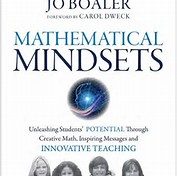Glow Link to the National Numeracy and Mathematics Hub
The National Numeracy and Mathematics Hub is a virtual learning environment for all practitioners, providing an innovative approach to career-long professional learning across all sectors. It provides:
- Professional learning in different aspects of numeracy with a focus on progression, numeracy and mathematics skills, numeracy across learning, assessment, moderation and teaching.
- Career-long professional learning opportunities of various types such as broadcasts, professional reading and action research.
- An easy to use environment where you can share and work with colleagues from across Scotland as well as those from your own school or authority
https://glowscotland.sharepoint.com/sites/PLC/numeracyhub/SitePages/Modules%20%26%20Sessions.aspx
National Numeracy and Mathematics Framework for Assessment
This resource has been produced to support staff in developing their understanding of progression within the experiences and outcomes. It identifies within each organiser the key milestones and building blocks that learners should know before moving on to the next stage of learning. Numeracy and mathematics organisers are not taught in isolation from each other and knowledge in one organiser may be required to progress in other organisers.
National-Numeracy-and-Mathematics-Progression-Framework
Learning Together – Mathematics (HMI)
Assessing Progress and Achievement in Numeracy and Mathematics
Mike Askew
Mike is the Adjunct Progessor of Education at Monash University, Melbourne. We were delighted to welcome him to Argyll and Bute on the 26th September 2017, where he inspired a room full of enthusiastic practitioners with his teaching ideas and concepts around problem solving. The pages below focus specifically on his work in Transforming Primary Maths.
http://mikeaskew.net/page3/page2/files/Mathswithmeaning.pdf
http://mikeaskew.net/page3/page2/files/Its%20all%20relative.pdf
http://mikeaskew.net/page3/page4/files/EffectiveTeachersofNumeracy.pdf
http://mikeaskew.net/page3/page2/files/LearningMultplicationFacts.pdf
http://mikeaskew.net/page3/page2/files/LearningSubtraction.pdf
http://mikeaskew.net/page3/page2/files/Mathematicalfluency.pdf
http://mikeaskew.net/page3/page2/files/NumberBondsto10.pdf
http://mikeaskew.net/page3/page2/files/Startingfromproblems.pdf
http://mikeaskew.net/page3/page2/files/In%20good%20shape.pdf
http://mikeaskew.net/page3/page2/files/Additive%20reasoning.pdf
http://mikeaskew.net/page3/page2/files/Know%20your%20place.pdf
http://mikeaskew.net/page3/page2/files/Playing%20with%20patterns.pdf
http://mikeaskew.net/page3/page2/files/Sound%20as%20a%20pound.pdf
http://mikeaskew.net/page3/page2/files/The%20perfect%2010.pdf
http://mikeaskew.net/page3/page2/files/The%20perfect%2010.pdf
Further Reading
 “Mathematical Mindsets” by Jo Boaler, Professor of Mathematical Education at the Stanford Graduate School of Education is a fantastic read for all practitioners. It links closely with the work done by Carol Dweck on Growth Mindsets. We have some copies available to give to schools so to request a copy please contact Maria McArthur or Pauline Inglis.
“Mathematical Mindsets” by Jo Boaler, Professor of Mathematical Education at the Stanford Graduate School of Education is a fantastic read for all practitioners. It links closely with the work done by Carol Dweck on Growth Mindsets. We have some copies available to give to schools so to request a copy please contact Maria McArthur or Pauline Inglis.
The Making Maths Count document published by the Scottish Government in September 2016 lays out the National priorities in raising 
attainment in Mathematics. This is an important document to use when planning your Numeracy development work in schools and highlights in particular the importance of creating a positive attitude towards Maths and Numeracy – and that’s where Jo Boaler comes in! It also talks about how we can raise the profile of Maths with parents and across the country.
Here is a link to an article discussing the importance of Mathematics in the Work Place, which is particularly suitable for those working in our Secondary Schools:
This paper, published by the Department of Education (England) reviews catch-up strategies and interventions which are intended for low-attaining pupils in literacy and/or numeracy at the end of Key Stage 2. Whilst it is written for the English school system, it makes interesting points about the demographics of pupils who are low-attaining and the similarity in trends, and also highlights the difficulties in finding effective numeracy strategies to close the gap for pupils once they have left primary school. It is all about early intervention folks!
Literacy-and-Numeracy-interventions-effectiveness

